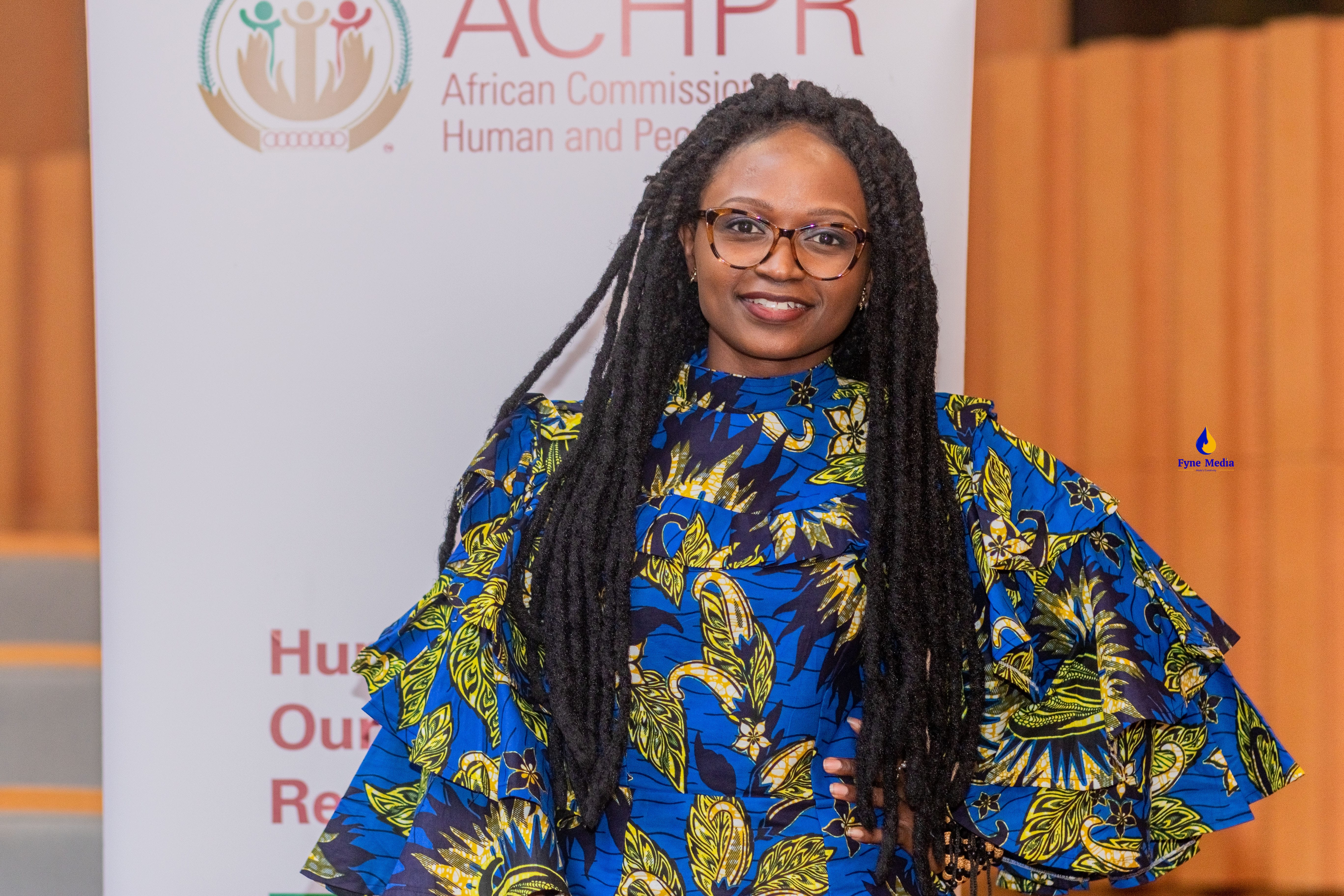Ruddy Morfaw is a Cameroonian jurist, writer and spoken-word poet. For over a decade, she has worked with institutions in the area of human rights, peace, development and corporate litigation. She has been a researcher and human rights activist with the Cameroon National Commission on Human Rights and Freedoms (NCHRF), Southwest Region, and she currently works as a research consultant at the African Commission on Human and Peoples’ Rights.
As a jurist, she is interested in inclusive and accountable governance in public and corporate management systems.
As an artist, she expresses herself through poetry, debate, playwright, graphics and other contemporary forms of arts.

You are a jurist: what urged you to study Law? Have you always been interested in this field?
Growing up, I think I had interest in the broad area of communication, and I’d regularly mimic the art of news broadcasting in the comfort of any private room. My only concern however was my shyness and timidity. Getting to the University, my mum encouraged me to do Law, as a platform that will open me up to many other opportunities. I saw reason with her and went ahead.
Over time I have mostly stayed in Law, but constantly embraced my other interests and artistic talents. And indeed, my legal background has remained a platform for inspiration and intellectual reasonings.
You are passionate about politics and human rights: does human rights advocacy contrast or is part of political activism?
I think human rights advocacy is in a sense political activism itself; because what constitute the policies which are being lobbied for and eventually enforced (or not), are the rights which are on the other hand being advocated for, with the main difference being the position from which the person stands – as a politician or simply an activist.
How are laws and human rights related to art? Can poetry speak more efficiently than other languages about these issues?
Art is always influenced by the socio-political environment of the artist; and I love literary art, and specifically poetry because it always finds a way to talk about anything and in any creative way possible. I think poetry sometimes does show up to be a more efficient voice on sensitive issues such as law, policy and human rights because of its ability to speak fervently in direct words or with subtlety, and in beautiful but thought-provoking satire.
This way, it gets to reach a wider audience, especially those who would otherwise not want to be concerned with the politics of their time, but which however impacts their everyday life.
With regard to women empowerment, are women in your country socially and politically active? And what about ordinary women in their everyday life?
Although men still occupy much of the space, there is a growing interest and engagement in political and more especially social activism, among women in my country. With the recent Anglophone Crisis in the last six years and running, the socio-political climate has been tense in the English-speaking regions, creating more caution among ordinary women, on issues of advocacy towards the government.
You were invited to perform your poem “Across Borders” at the 75th ordinary meeting of the African Commission on Human and Peoples’ Rights. It’s incredible to see poetry enter such an institutional place and talk about migration, passports and trade with a clarity and power that so many political speeches lack. What inspired you to write a poem about these topics and how were you invited to perform at the assembly?
I like writing political poems because I feel it’s an efficient way to self-express liberally and profoundly and draw attention to issues which may have been said too often and too plainly that they have become cliché and ignored – which is common with political questions.
I have written and performed a number of poems, which several people have admired. One of these was: “A Forward to the Statesman” which I performed on invitation to the 11th High Level Dialogue on Democracy Governance and Human Rights, organised by the African Union’s African Governance Architecture (AU-AGA) in Benin in 2022. The poem focused on unconstitutional change of government in Africa.
Following this performance, the African Commission on Human and Peoples’ Rights in Gambia where I work, requested that I perform a piece at its 76th Ordinary Session. My focus in Across Borders was the African Continental Free Trade Area (AfCFTA) Agreement which was inspired by the AU’s 2023 theme of year – ‘Accelerating the AfCFTA implementation’, as well as the panel discussions which were anticipated to take place during that Session.
My knowledge on the issues around migration, business and human rights, as well as personal experiences of travel constraints within Africa, were also an easy inspiration in preparing such a piece. A few colleagues gave me their feedback, and everyone was indeed very impressed with the final product.
Interview by Gaia Resta
Link to the interview in Italian
****
Read The Man We Married
Read Marred and Mad
Read You Must Know
Ruddy Morfaw has always been so inspirational and one can feel every word her poetry. Can’t wait to see her go bigger. More Grace